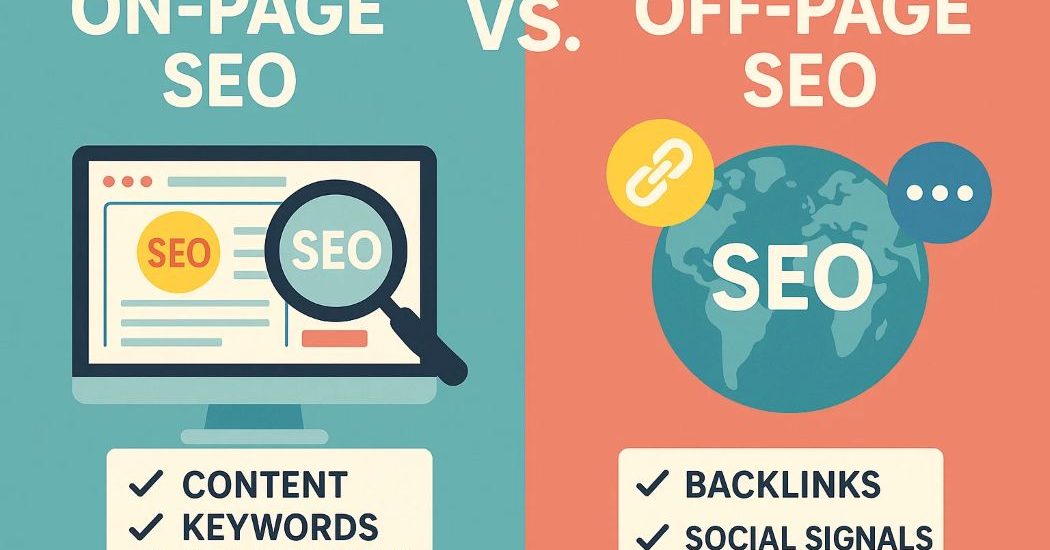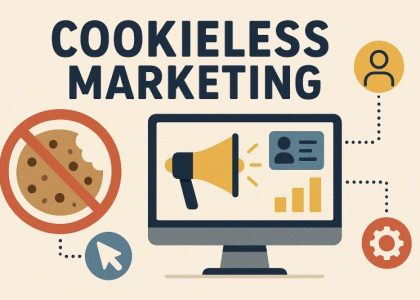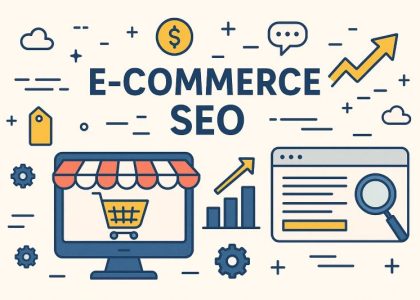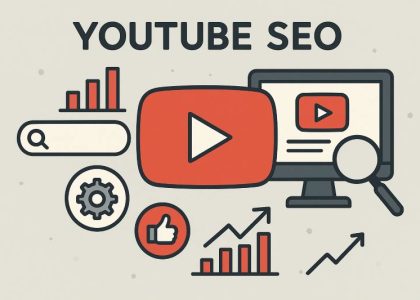Onpage SEO has become the foundation of success in 2025’s evolving SEO landscape. Search engines now prioritize user experience over outdated tricks. Tactics like keyword stuffing and low-quality backlinks no longer work. Instead, businesses must focus on valuable content, seamless navigation, and fast-loading websites.
While on-page SEO sets the stage for visibility, off-page efforts are equally important for authority and reach. But the big question is—which one matters more now?
In this blog, we’ll break down both strategies and explore what truly impacts your Google rankings in 2025.
🔍 What Is On-Page SEO?
On-page SEO includes all the optimizations you can directly control on your website to increase visibility in search results. It ensures your site is structured, user-friendly, and aligned with search engine guidelines.
Key Components of OnPage SEO:
- High-quality, keyword-optimized content
- Effective title tags and meta descriptions
- Header tags (H1, H2, H3) for structure
- Internal linking for navigation and relevance
- Image optimization with alt text
- SEO-friendly URL structures
- Mobile responsiveness and fast page load speeds
📌 Mobile responsiveness and quick load times not only enhance user experience but also help search engines understand the value of your content. A smooth browsing experience keeps visitors engaged and reduces bounce rate.
✅ Example: A blog post with clear headings, alt text for images, and internal links to related topics is a strong example of effective onpage SEO.
🌐 What Is Off-Page SEO?
Off-page SEO refers to strategies applied outside of your website that influence your search engine rankings. It’s about building your site’s authority, trust, and reputation online.
Key Off-Page SEO Techniques:
- Backlinks from high-authority websites
- Social media sharing and user engagement
- Brand mentions across forums, blogs, and media
- Guest posting on niche-relevant sites
- Influencer outreach and marketing
📌 These off-site actions show Google that your content is trusted, valuable, and worth ranking above others.
✅ Example: If a leading tech site links to your article on AI tools, that backlink signals credibility and boosts your site’s authority in the eyes of search engines.
⚖️ What’s More Important in 2025?
In 2025, User Intent and Content Quality are at the core of SEO success. Both onpage and off-page SEO play critical roles, but let’s compare them side-by-side:
| Factor | On-Page SEO | Off-Page SEO |
|---|---|---|
| Control | Full control | Limited control |
| Speed of implementation | Immediate | Slow and long-term |
| Google ranking signals | Yes (content, UX, speed, etc.) | Yes (authority, trust) |
| Impact without the other | Moderate | Weak without strong on-page foundation |
| Long-term growth | Foundational | Exponential with high-quality backlinks |
🛠️ Why On-Page SEO Comes First
Your website is your SEO foundation. If your on-page SEO is weak, even thousands of backlinks won’t help you rank. Google now values:
- Easy-to-read, relevant content
- Fast-loading, mobile-friendly design
- Well-structured pages with clear headings
- Content that matches search intent
Even Google’s advanced AI models like Search Generative Experience (SGE) rely on well-structured, optimized content to deliver accurate answers.
🚀 How Off-Page SEO Enhances Your Strategy
Once your onpage SEO is in place, off-page techniques amplify your reach and authority. Backlinks from trusted sources improve your domain authority, while social media sharing helps your content gain visibility across wider audiences.
📈 Google pays close attention to how others interact with your content across the web. Off-page SEO builds trust and drives external traffic to your site.
✅ Pro Tips: Balancing Both in 2025
To succeed in 2025, you need to combine both strategies effectively. Here’s how:
- Start with on-page SEO. Optimize your content, site speed, and user experience first.
- Create link-worthy content. Make content that’s original, informative, and shareable.
- Earn backlinks naturally. Focus on real relationships, not shady link schemes.
- Leverage social media. Share valuable content on platforms where your audience lives.
- Track your performance. Use tools like Google Search Console, Ahrefs, or SEMrush to measure SEO impact.
🏁 Conclusion: It’s Not Either/Or—It’s Both
In 2025, on-page SEO is the non-negotiable starting point. It ensures your website performs well, is crawlable, and offers a positive experience to users and search engines.
But to dominate search rankings, you need off-page SEO to build authority, trust, and visibility.
Think of it this way:
- On-page SEO helps Google understand your content and users enjoy it.
- Off-page SEO helps Google trust your content and others promote it.
👉 Master both, and your website won’t just rank — it will thrive.





